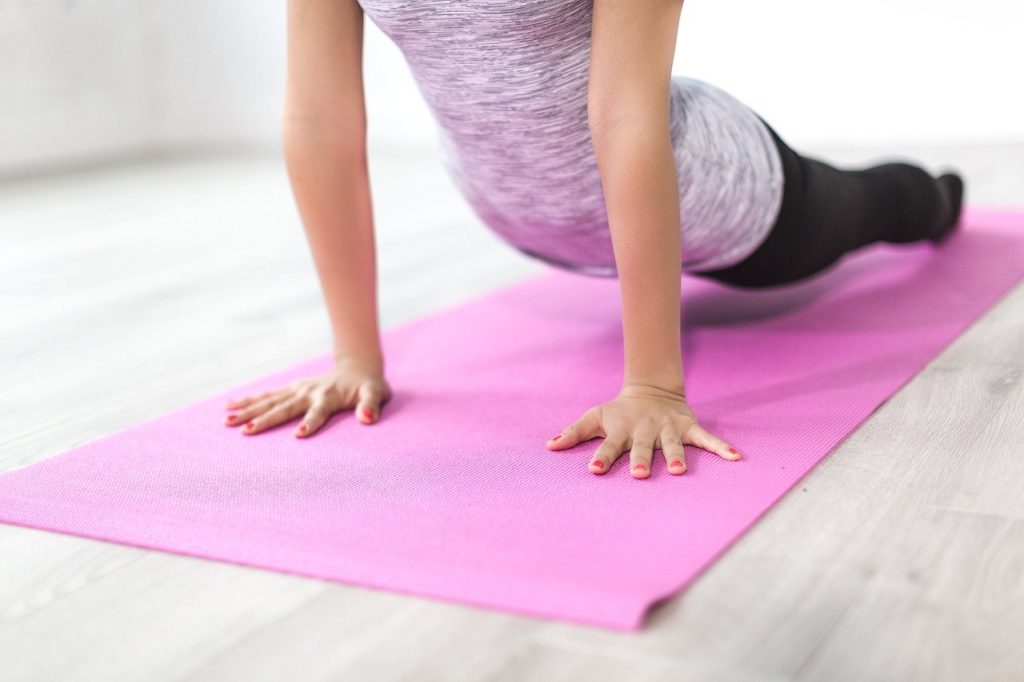As a nursing instructor, I have seen hundreds of students progress through nursing school. I have been very proud of their successes in all specialties of nursing. Common to many students was the stress of difficult courses and time commitments. A few students worked hard to pursue a healthy lifestyle while in school. But, I would say most exercised less and gained weight. In this post, I will give you some ideas to stay health during nursing school.
Finding Time for Exercise

The biggest obstacle most students find is the time crunch of nursing education. Both part-time or full-time students spend time in classes and clinical experiences. Reading and studying need as much time. The time commitments are almost like a full-time job. Evening and weekends are often needed to prepare for the next week’s assignments or exams. So, start by setting up a calendar with at least 30 minutes of exercise 5 days per week. While this might be less than your normal, it allows at least the minimum amount of recommended daily exercise. If you can schedule in more time, that is great. I’m not advocating taking up a challenging new exercise program or running a marathon. But, time spent maintaining your fitness will help you in your journey.
Walking to campus or parking a distance away from your classes can add exercise to your day. Taking the steps rather than elevator is also a healthy choice Some campuses offer exercise classes or groups to help students stay healthy. Look for opportunities on campus to stay fit. The “freshman 10” doesn’t have to be a problem for you.
Eating Healthy is a Must

Eating healthy is also important. Of course, lack of time makes it a challenge. With time spent on campus, grabbing a quick snack or fast food is easy. But, this type of eating frequently leads to poor nutrition and weight gain. Combine time crunches with limited finances and students often have poor eating habits.
What are some ways to optimize nutrition while in school? The first step is planning. Think about the types of healthy snack you could buy without breaking the bank. These can also be nutritious without being high in calories. Consider filling snacks like baby carrots with dip or peanut butter and apple slices. Celery sticks, bananas, string cheese, or a quarter cup of nuts are healthy snacks. Buying in bulk can allow you to afford to buy higher-quality granola bars, nuts or other snacks. Repackage bulk foods in single-serving containers for easy packing. Heading to campus with snacks and meals in hand is a smart move.
I realize none of these ideas are earth-shattering or new. But they do require some planning. And they can save time and money in the long run. Likewise, planning meals for the week saves time and money. I’ve found making a grocery list on my phone is a simple and effective way to ensure I have needed ingredients. Having to stop at the grocery store often throughout the week is inefficient. It can lead to an increase in impulse buying, at least in my experience. If you haven’t been one to plan, now might be the time to start this helpful and healthy habit.
Fluids are Important

Ensure you get an adequate amount of fluid daily, too. Drink bottles brought along to campus and refilled helps you stay hydrated. They also save money versus buying individual bottles of water or other beverages. And, of course, this helps the environment. Avoid sugary drinks as they add extra calories. In addition, when we get dehydrated, we may be more likely to snack leading to excess calories. Drinking water also keeps us from feeling sluggish or tired between meals.
Sleep: A Necessary Requirement

When looking at your schedule, also ensure adequate sleep. Studying late at night is needed at times. But, try to avoid it night after night. Some students work in the evening or at night also cutting into sleep time. When one becomes very fatigued or run down, the immune system may not work as well. You may be prone to colds and other illnesses. Also, when tired, our long-term retention of information lessens. Exam grades may suffer. So, try to get your optimum amount of sleep on most nights.
The School Health Requirements

Nursing programs require a physical exam and evaluation of immunizations to begin the clinical practicum. The campus health centers may offer low-cost immunizations, among other benefits. Getting annual flu shots and the COVID-19 vaccine will also help in maintaining your health. When in the clinical setting, the student nurse risks exposure to communicable diseases. Immunization is key. Taking these steps will maintain your health.
Nursing education will have a significant impact on your life. Unfortunately for some, their health can be affected due to stress and inactivity. Try to find ways to stay healthy as you prepare for your nursing journey. Some of these tips may help. The time spent planning and making simple changes will allow you to be healthier in your nursing journey.

